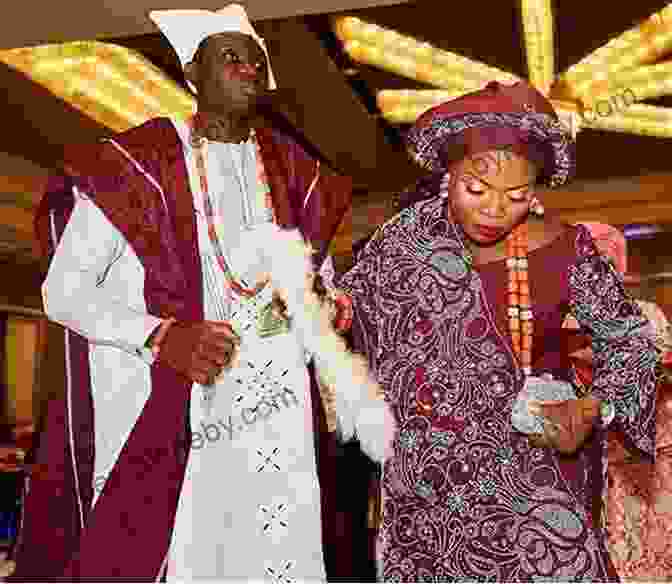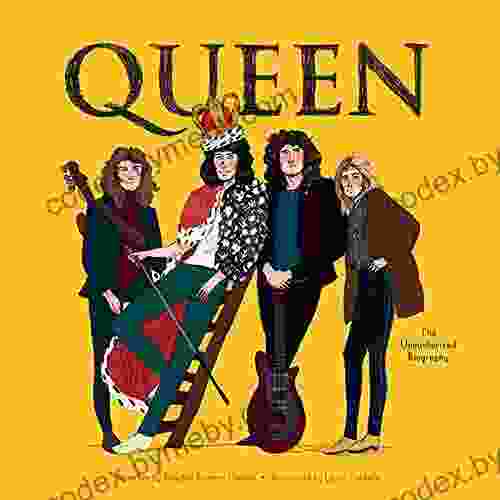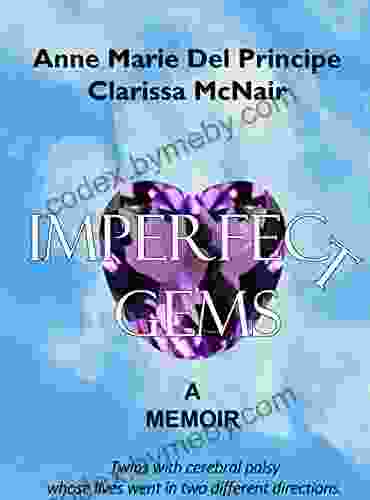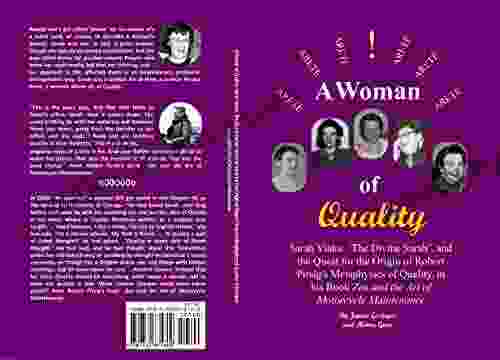Your Yoruba Traditional Wedding Engagement: A Guide to a Beautiful and Meaningful Ceremony

Congratulations on your engagement! Planning a traditional Yoruba wedding engagement is an exciting time, but it can also be a bit overwhelming. There are so many things to think about, from the attire to the food to the ceremony itself. But don't worry, we're here to help.
5 out of 5
| Language | : | English |
| File size | : | 1278 KB |
| Text-to-Speech | : | Enabled |
| Screen Reader | : | Supported |
| Enhanced typesetting | : | Enabled |
| Word Wise | : | Enabled |
| Print length | : | 26 pages |
In this guide, we'll cover everything you need to know about planning a traditional Yoruba wedding engagement. We'll start with the basics, such as the different types of Yoruba weddings and the roles of the various family members. Then, we'll move on to the more specific details, such as the attire, the food, and the ceremony itself.
By the end of this guide, you'll have all the information you need to plan a beautiful and meaningful Yoruba traditional wedding engagement. So sit back, relax, and let's get started!
The Different Types of Yoruba Weddings
There are two main types of Yoruba weddings: the traditional wedding and the white wedding. The traditional wedding is the more traditional of the two, and it is typically held in the bride's hometown. The white wedding is more modern, and it is typically held in a church or other Western-style venue.
The traditional Yoruba wedding is divided into two parts: the engagement ceremony and the wedding ceremony. The engagement ceremony is typically held a few months before the wedding ceremony, and it is where the couple formally announces their intention to marry. The wedding ceremony is typically held a few weeks after the engagement ceremony, and it is where the couple is officially married.
The Roles of the Various Family Members
In a traditional Yoruba wedding, the family plays an important role. The bride's family is responsible for providing the food and drinks for the ceremony, as well as the bride's dowry. The groom's family is responsible for providing the bride price, as well as the gifts for the bride's family.
The bride's father is the head of the bride's family, and he is responsible for negotiating the bride price with the groom's family. The groom's father is the head of the groom's family, and he is responsible for providing the bride price to the bride's family.
The bride's mother is responsible for preparing the bride for the ceremony, and she is also responsible for providing the bride with her dowry. The groom's mother is responsible for preparing the groom for the ceremony, and she is also responsible for providing the groom with his gifts for the bride's family.
The Attire
The attire for a traditional Yoruba wedding is very important. The bride typically wears a beautiful iro and buba, which is a traditional Yoruba dress. The groom typically wears an agbada, which is a traditional Yoruba robe.
The bride's iro and buba is typically made of a rich fabric, such as silk or velvet. The groom's agbada is typically made of a more casual fabric, such as cotton or linen.
The bride and groom may also wear other accessories, such as headpieces, jewelry, and shoes. The bride's headpiece is typically called a gele, and it is a symbol of her status as a married woman. The groom's headpiece is typically called a fila, and it is a symbol of his authority as a husband.
The Food
The food at a traditional Yoruba wedding is typically very plentiful. The bride's family provides the food for the ceremony, and they typically prepare a variety of dishes, such as rice, stew, soup, and pounded yam.
The groom's family provides the gifts for the bride's family, and they typically include items such as kola nuts, palm wine, and livestock.
The Ceremony
The traditional Yoruba wedding ceremony is a beautiful and meaningful event. The ceremony is typically held in the bride's hometown, and it is attended by both the bride's and groom's families and friends.
The ceremony begins with the bride's father welcoming the groom and his family to his home. The bride's father then presents the groom with the bride price, and the groom accepts the bride price. The bride and groom then exchange vows, and they are pronounced husband and wife.
After the ceremony, the bride and groom are typically given gifts from their families and friends. The bride and groom then proceed to their new home, where they will begin their new life together.
Planning a traditional Yoruba wedding engagement can be a lot of work, but it is also a very rewarding experience. By following the tips in this guide, you can plan a beautiful and meaningful ceremony that you and your loved ones will cherish for years to come.
Congratulations on your engagement! We wish you all the best in your new life together.

5 out of 5
| Language | : | English |
| File size | : | 1278 KB |
| Text-to-Speech | : | Enabled |
| Screen Reader | : | Supported |
| Enhanced typesetting | : | Enabled |
| Word Wise | : | Enabled |
| Print length | : | 26 pages |
Do you want to contribute by writing guest posts on this blog?
Please contact us and send us a resume of previous articles that you have written.
 Book
Book Novel
Novel Page
Page Chapter
Chapter Text
Text Story
Story Genre
Genre Reader
Reader Library
Library Paperback
Paperback E-book
E-book Magazine
Magazine Newspaper
Newspaper Paragraph
Paragraph Sentence
Sentence Bookmark
Bookmark Shelf
Shelf Glossary
Glossary Bibliography
Bibliography Foreword
Foreword Preface
Preface Synopsis
Synopsis Annotation
Annotation Footnote
Footnote Manuscript
Manuscript Scroll
Scroll Codex
Codex Tome
Tome Bestseller
Bestseller Classics
Classics Library card
Library card Narrative
Narrative Biography
Biography Autobiography
Autobiography Memoir
Memoir Reference
Reference Encyclopedia
Encyclopedia Stewart Alsop
Stewart Alsop Christian Fader
Christian Fader Christina Ezrahi
Christina Ezrahi Vikas Bhushan
Vikas Bhushan Cindy Lin
Cindy Lin Duff Mcdonald
Duff Mcdonald Chris Sarra
Chris Sarra Chris Wraight
Chris Wraight Phil Jimenez
Phil Jimenez Christopher J Berry
Christopher J Berry Christopher Spinney
Christopher Spinney Jack Heinowitz
Jack Heinowitz George F Hayhoe
George F Hayhoe Jordan Christy
Jordan Christy Christine Feehan
Christine Feehan Chris Santella
Chris Santella Chuck Stewart
Chuck Stewart Christopher Hinz
Christopher Hinz Christopher Hill
Christopher Hill Harvey J Platt
Harvey J Platt
Light bulbAdvertise smarter! Our strategic ad space ensures maximum exposure. Reserve your spot today!

 Andres CarterExplore the Wild Wonders of Botswana: Okavango Delta, Chobe, and Northern...
Andres CarterExplore the Wild Wonders of Botswana: Okavango Delta, Chobe, and Northern...
 Pablo NerudaDiscover the Alphabet with Mori and Zee: A Whimsical Journey into the World...
Pablo NerudaDiscover the Alphabet with Mori and Zee: A Whimsical Journey into the World... Ryūnosuke AkutagawaFollow ·3.6k
Ryūnosuke AkutagawaFollow ·3.6k Neal WardFollow ·7.5k
Neal WardFollow ·7.5k Hassan CoxFollow ·15.4k
Hassan CoxFollow ·15.4k Deacon BellFollow ·6.3k
Deacon BellFollow ·6.3k Matt ReedFollow ·7.7k
Matt ReedFollow ·7.7k Colin FosterFollow ·7.6k
Colin FosterFollow ·7.6k J.D. SalingerFollow ·15k
J.D. SalingerFollow ·15k Jackson HayesFollow ·5k
Jackson HayesFollow ·5k

 Rick Nelson
Rick NelsonThe Power of Positivity: 51 Motivational Quotes to...
In the tapestry of life, we encounter...

 Lee Simmons
Lee SimmonsThe Indian War of 1864: A Devastating Conflict in the...
The Indian War of 1864 was a brutal...

 Eddie Bell
Eddie BellQueen: The Unauthorized Biography: Unraveling the Secrets...
Prepare to delve into the captivating...

 Dion Reed
Dion ReedUnveiling the Imperfect Gems of Trauma and...
In the tapestry of...

 Desmond Foster
Desmond FosterThirty-Six Years in the Rockies: A Timeless Masterpiece...
A Journey Through Time and...
5 out of 5
| Language | : | English |
| File size | : | 1278 KB |
| Text-to-Speech | : | Enabled |
| Screen Reader | : | Supported |
| Enhanced typesetting | : | Enabled |
| Word Wise | : | Enabled |
| Print length | : | 26 pages |










